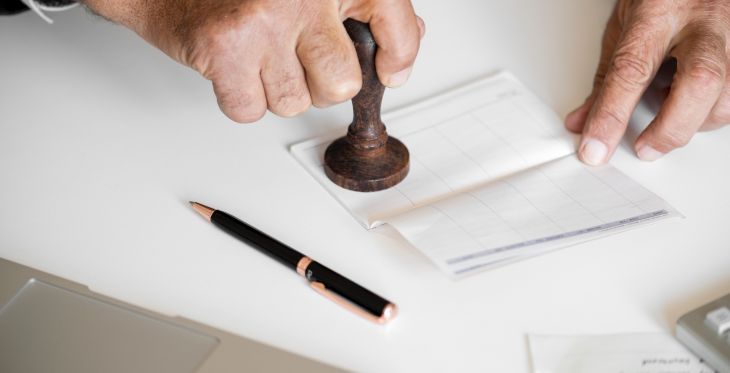Stamp Duty Rates and Tax - All you need to know
Buying a property can be a whirlwind experience for anyone. One reason we can feel a little overwhelmed is because of the number of charges that are thrown in with your fees. This article will explain Stamp Duty rates - how it works and whether you have to pay for it.
When buying a property there’s always a grey area over what fees and charges you’re liable to pay. This comes with juggling the purchase of the home itself, which, when it's make or break in getting your dream home can be a stressful ordeal in itself. This can take the form of understanding the interest rate you have on your mortgage, legal fees & Stamp Duty Land Tax, commonly known as a stamp duty – think of it as a sort of ‘transaction tax’, something which you’ll have to pay when buying your home. Stamp duty is often the one that is overlooked when budgeting for your move yet, miss it at your peril as stamp duty can amount to a hefty number to find when its not been allowed for.
This guide will show you how stamp duty works, if you’re liable to pay it, what the stamp duty rates are for second-time buyers and if you are due to pay. So, let’s get started!
What is stamp duty?
Stamp duty is often the lesser-known part of the property buying experience. But what exactly is it? In England and Wales, you’re expected to pay stamp duty tax when you have bought a residential property that is in excess of the £125,000 mark. This will apply to freehold properties and leasehold properties, regardless of whether you're buying the property outright or whether you’re doing it with a mortgage.
If you’re unsure on the difference between a leasehold and a freehold property, here’s the key difference. Leasehold property is only owned for a fixed period of time. You will have a legal agreement with the landlord. This contrasts with a freehold property which is outright ownership of the property and the land on which it stands. Which means that the owner of the land has no time period on their ownership.
Does it apply to you?
Now, for those First Time Buyers who are reading this, breathe a big sigh of relief. As from the 22nd November 2017, if you have completed a purchase on this date or after it and the purchase price was £300,000 or less, you are exempt from stamp duty! Yay for you. While this is great for many, sadly if you're already a homeowner, then you will be expected to pay stamp duty.
However, something for those of you who are married to note; you will need to BOTH be First Time Buyers so that you can get the above-mentioned privileges. Unmarried people can also get this, but only if one of the people in the relationship is a First Time Buyer. Though, there are some restrictions on this. For example, the maximum amount you can save on a property is £5,000 regardless of the names on the mortgage deed. You will also need to decide whether the application is made in one name or not as it will be based on their income alone. This could affect how much the lender is prepared to lend.
How much does it cost?
Like with most taxes, what you have to pay is dependent on the band that you fall into. Stamp Duty is no different. For example, if you buy a house the first £125,000 of the price will be at 0% stamp duty. Great! On the next £125,000 there will be a 2% tax and then between £250,001 and £925,000, there will be a 5% tax.
So, for example, if you were to buy a house that costs £400,000 there will be 0% on the first £125,000 which, as most of the mathematicians reading this will know that this equals zero… Then the 2% tax on the next £125,000 will be equal to £2,500. Then the remaining £150,000 of the property price taxed at 5%, this will equal to £7,500. Meaning that overall, your stamp duty tax will be equal to £10,000.
What happens to those buying second homes?
People looking to buy additional rental properties, you will have to pay an extra 3% in stamp duty on top of the current rates for each band. This will only apply to those buying properties in excess of the £40,000 mark. Though this won’t apply to caravans, mobile homes or houseboats…
If the property you’re looking to buy is intended to be your main residence, then make sure you sell your previous main residence before completing your purchase, because you’ll have to pay the 'second home' rates as you’ll now own two properties.
Though rejoice, if you do your homework there can be ways to get your money back. You can request a refund for the amount above the normal stamp duty rates IF you sell your previous main residence within three years of it being bought. While this provides an excellent safety net, you can also claim the refund within three months of your previous main residence being sold or if this is quicker, within 12 months of your self-assessment tax return being filed.
If you can’t be bothered to do the maths yourself, there are loads of free stamp duty calculators out there, so go crazy.
However, if you’re looking for a second mortgage, Mortgages Online can help. Put your credit card down! MO doesn’t charge you for our great service. Simply use our handy tool to find a mortgage deal that’s right for you!










